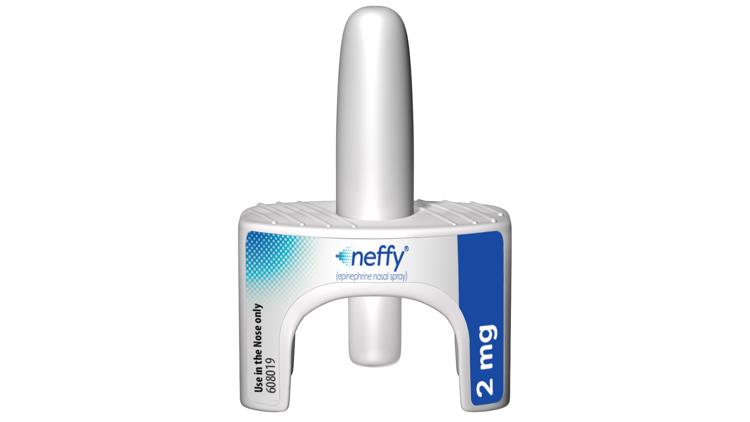The Future of Allergy Treatment: Needle-Free Nasal Spray Approved by FDA

Anaphylaxis is a severe allergic reaction that sends more than 30,000 people to emergency rooms, resulting in more than 2,000 hospitalizations and over 230 deaths each year in the U.S. This life-threatening condition can be triggered by various substances like food, insect stings, or medications.
Breaking news – The FDA has just approved a revolutionary nasal spray as an emergency treatment for anaphylaxis. Developed by ARS Pharmaceuticals Inc., this needle-free alternative is a game-changer for the millions of Americans with severe allergies.
This nasal spray, known as Neffy, is a single-dose treatment that is administered by spraying it into one nostril. If needed, a second dose can be given to improve symptoms. It is intended for adults and older children weighing at least 66 pounds.
Dr. Thomas Casale, an allergist at the University of South Florida, highlighted the challenges with traditional auto-injectors, noting that many prescriptions go unfilled and even when available, they are often used incorrectly. Neffy aims to address this unmet medical need and provide a more user-friendly alternative for managing severe allergic reactions.
For parents like Priscilla Hernandez, whose son Zacky has multiple food allergies, the approval of Neffy is a welcomed relief. She shared the anxiety and trauma of having to administer an auto-injector during a reaction and expressed gratitude for a needle-free option.
Unlike traditional epinephrine products, Neffy has been designed to be easy to carry and use, especially for children. Richard Lowenthal, the CEO of ARS Pharmaceuticals, emphasized the simplicity and pain-free experience of using the nasal spray, likening it to spraying saline into the nose.
With other needle-free epinephrine devices in development, the future of allergy treatment is looking brighter. Neffy is expected to cost around the same as traditional auto-injectors, with hopes that insurance companies will cover the expenses for patients.
This innovative approach to managing anaphylaxis marks a significant advancement in allergy treatment and provides a safer, more user-friendly option for those at risk of severe allergic reactions.

